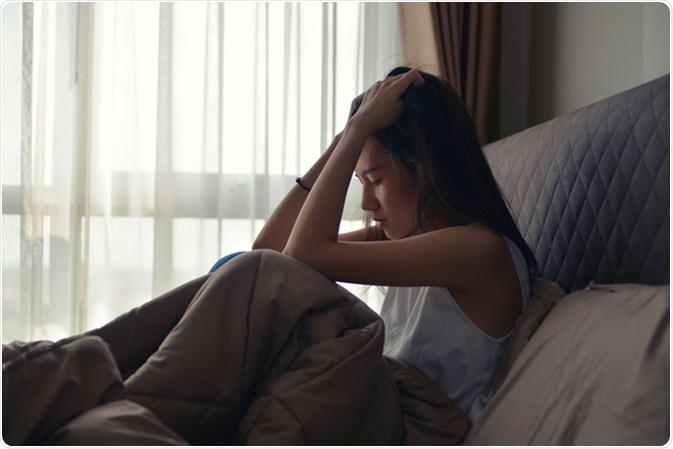People mostly worry about their health when they have some physical symptoms. This worry vanishes after getting the necessary and valid confirmation; however, for some people, the uneasiness and tension does not go away and they imagine having a serious medical condition. These worries affect their daily lives in many ways and progresses to severe health anxiety.
Overcoming such anxieties may prove to be an easy task in the initial stages; yet in other cases, the severity makes the process complex. In order to overcome this anxiety disorder, some may opt for professional treatment. People nowadays are more in favor of self-help strategies to prevent or alienate health anxiety. Such people, in spite of the efficiency of professional treatment, avoid it, citing personal reasons or use self-help methods to cure conditions that are less severe. Studies from various countries have shown that only few people seek professional help for their anxiety disorders.

Self-Help Benefits
The major advantage of self-help treatment is that patients can carry it out independently without taking help from others; they can practice therapies in their own flexible time and space. Self-help treatment is more suitable for adolescents and for people who are updated with new technologies, as many of the methods involved use these more helpful and effective technologies.
The several advantages of choosing self-help treatment include low cost of treatment compared with the professional methods, the patient is not required to take an appointment with the physician, and anytime help lines are available including books and the Internet.
Self-Help Practice Strategy
Several factors could act as hindrances for the patient against professional treatment for hypochondria. Negative experiences from previously used methods, professionals, or lack of improvement with the available treatment can be a few of them. Such challenges faced by patients can be managed by oneself without the help of a physician.
There are certain strategies that the individual needs to get involved in for overcoming health anxiety. Mentioned below are a few elements that a person should restrict himself from as a part of self-help.
- Stop worrying about health: One should know that to keep worrying about health is a sheer waste of time. Genuine health problems may be worrisome, but worrying excessively and beyond the appropriate limit is another kind of risk. The worry should instead be channeled toward what positive steps can be taken to reduce the anxiousness.
- Stop taking reassurance from others: One of the most common mistakes by a person with health anxiety is asking for frequent reassurance from the doctor or from other people. This needs to be avoided; in fact, asking for reassurance might provide short-term relief but one should prefer to reduce anxiety issues in the longer term. One can try doing activities like taking a walk or keeping busy, which may distract the daily persistent worry about health.
- Stop focusing on symptoms: There are many common physical symptoms like sneezing, itching, etc., which an individual should try not to focus on, as it may increase the symptoms and even make them feel more anxious. When a person focuses deeply on a physical symptom and finds another symptom that went unnoticed before, this triggers health anxiety disorder.
- Stop trying to research on illness: We know that if someone has health anxiety issues, they may have increased focus on evaluating the symptoms and illness through various sources like medical Internet sites, reading a medical book, and so on. One should not make it a habit to find such information, as they make one more anxious.
- Stop behaving illness: People with health anxiety avoid doing things like walking the dog, going out with friends, etc., because they worry that such things bring more illness. This may affect the unhealthy and unfit; in the long run it may lower the mood and lead to increase in health risks. So one should maintain a balance between health and relaxation on health.
Other Option for Self-Help Practices
Recent research has found that in the past few decades, self-help treatments have dramatically moved forward. This is because of access to the Internet in many households, and materials available that help in self-help practice at home, including self-help books and bibliotherapy that are in use from the past few years. Considering the advances in new technologies, this process has also upgraded the tools for self-help treatments. The recent trends in development are use of Internet sites, emails or chatrooms, and CD-ROM programs. These processes are highly advanced in nature and offer multiple sessions of using the technique.
A majority of people are known to practice only the initial trial levels of such methods, especially the youth. Due to this scenario, the quality of effectiveness may be less in self-help of health anxiety, which is a major drawback.
Sources
- http://www.anxietyaustralia.com.au/anxiety-help/health-anxiety/
- https://www.getselfhelp.co.uk/healthanxiety.htm
- http://www.moodjuice.scot.nhs.uk/anxiety.asp
- www.nhs.uk/…/Health%20Anxiety%20A4%20%202010.pdf
- http://www.cci.health.wa.gov.au/docs/Health%20Anxiety%20Module%201.pdf
- www.cpft.nhs.uk/Downloads/Martin/Coping%20with%20Health%20Anxiety.pdf
Further Reading
- All Anxiety Content
- What is Anxiety?
- Anxiety Causes
- Anxiety Symptoms
- Anxiety Diagnosis
Last Updated: Aug 23, 2018

Written by
Afsaneh Khetrapal
Afsaneh graduated from Warwick University with a First class honours degree in Biomedical science. During her time here her love for neuroscience and scientific journalism only grew and have now steered her into a career with the journal, Scientific Reports under Springer Nature. Of course, she isn’t always immersed in all things science and literary; her free time involves a lot of oil painting and beach-side walks too.
Source: Read Full Article
